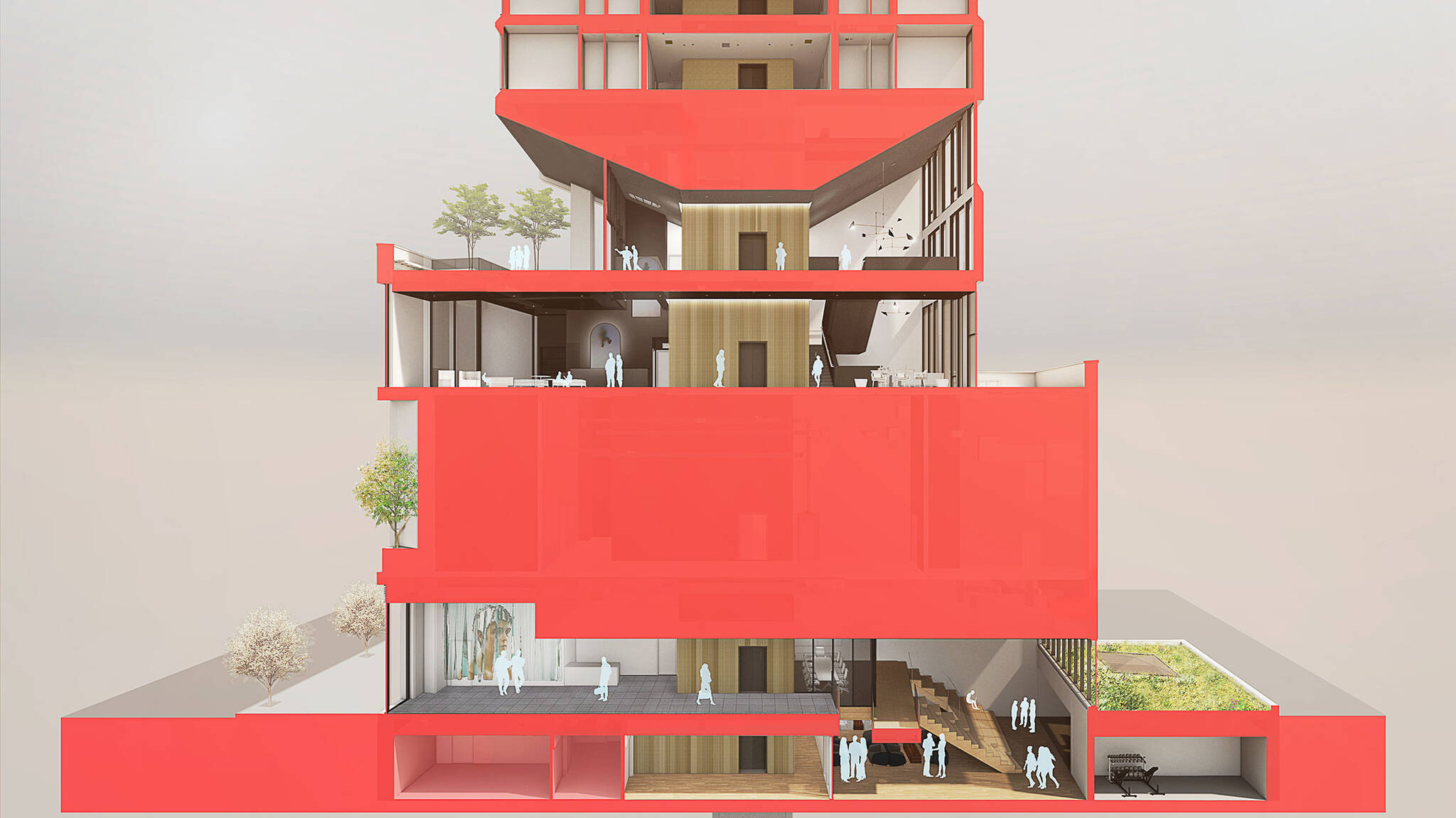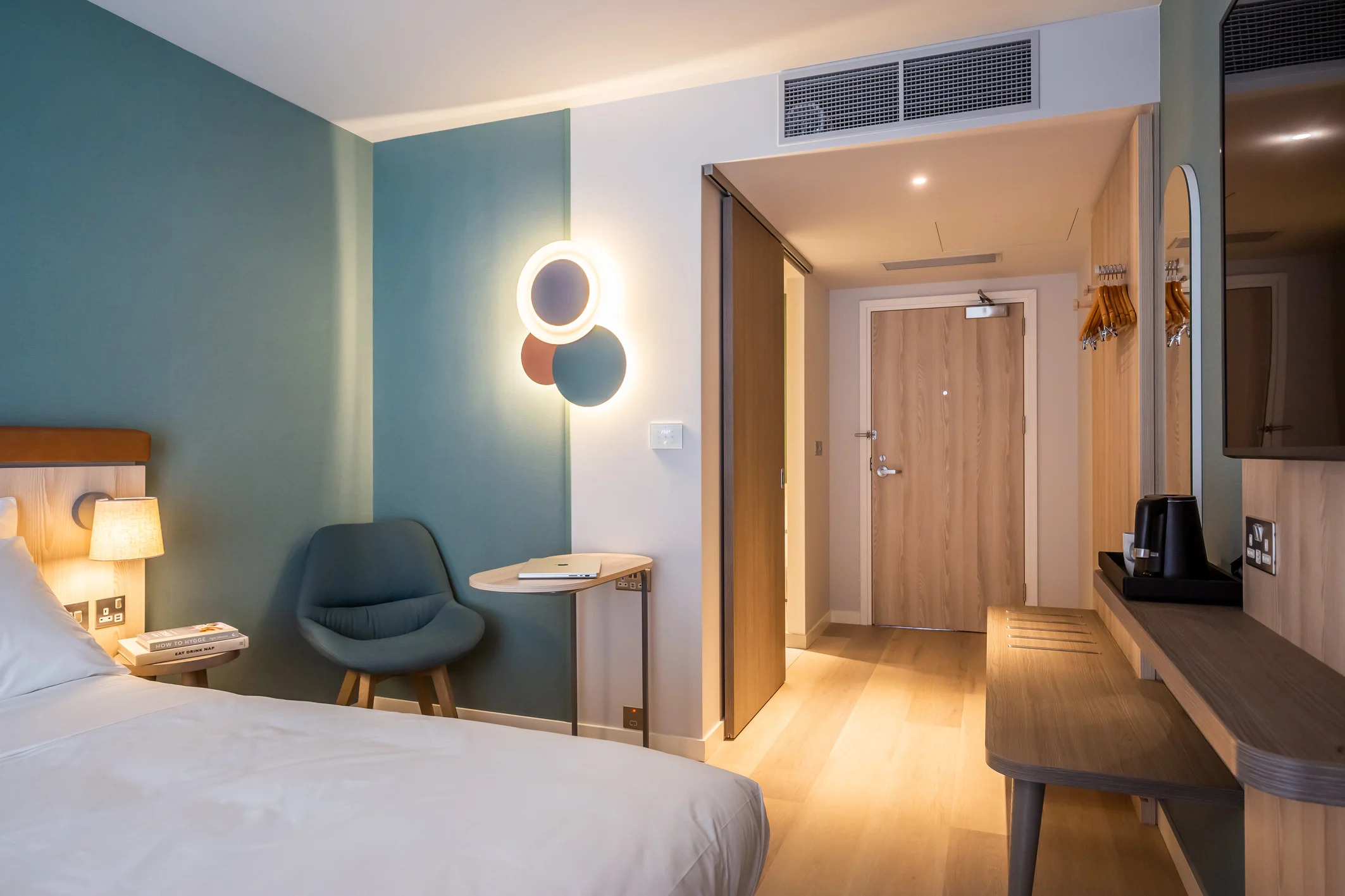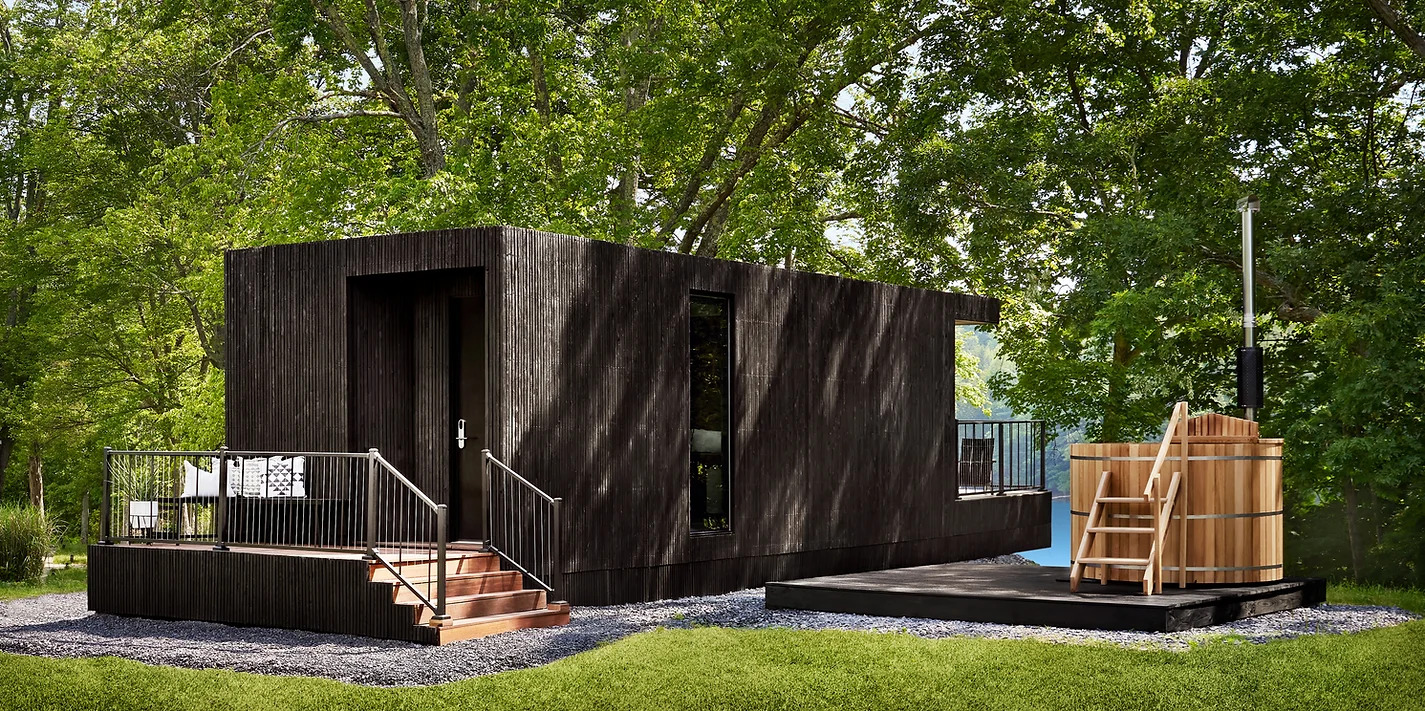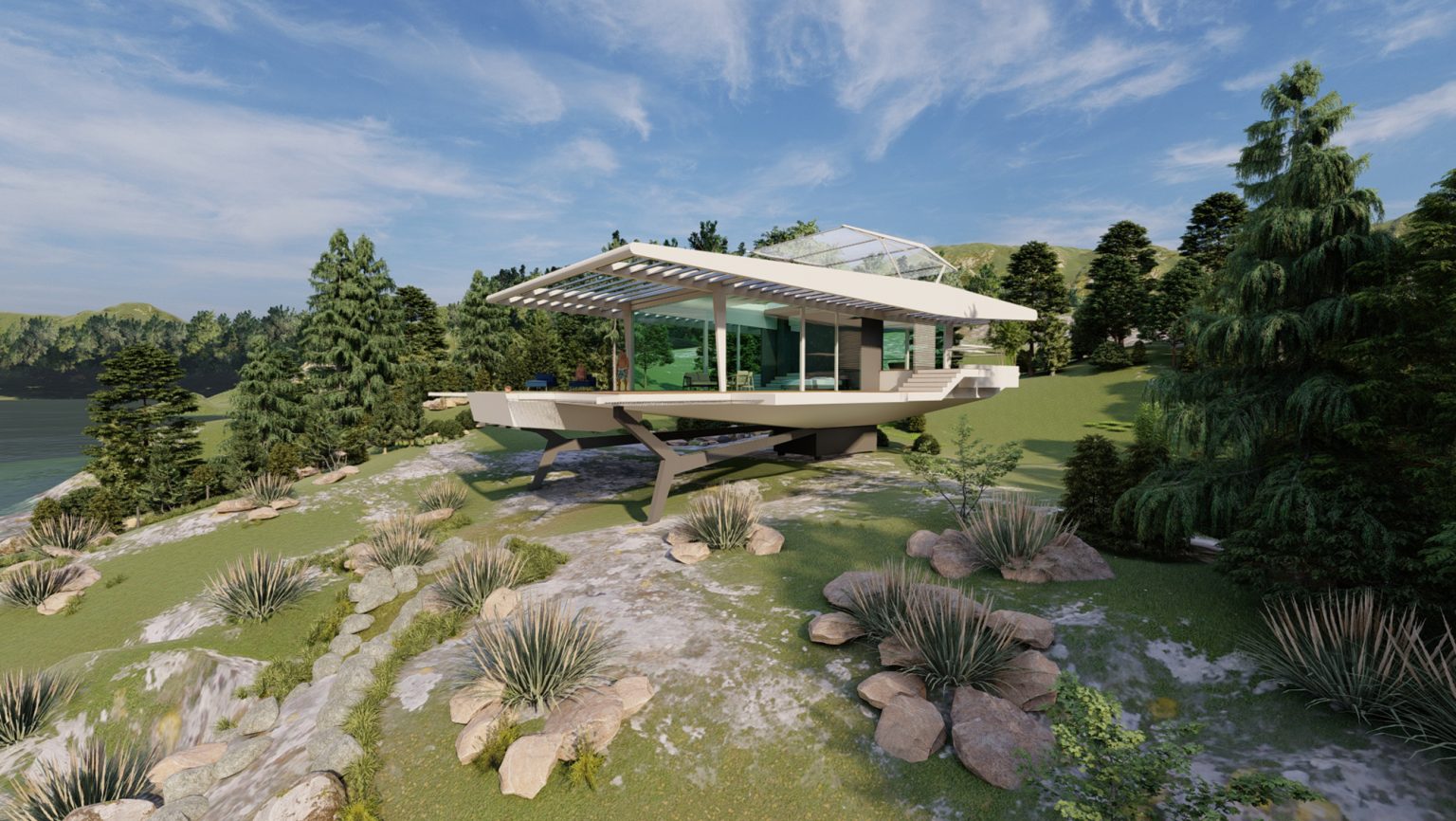With the boom that modular construction is experiencing in the residential sector, it was only a matter of time before it also reached the hospitality industry. The advantages are the same: greater building safety and a faster, more economical, and sustainable overall process.
As a sign that the hotel world is taking this construction method seriously, the giant Marriott made headlines back in 2019 by preparing the tallest modular hotel in the world (in Manhattan, 26 stories high).

In 2023, it became clear that it was not just a whim: the modular construction company Volumetric Building Companies (VBC) announced that they had created a prototype for the hotel chain, a 136-room building intended for secondary cities in the UK, Ireland, France, and Germany. According to Marriott’s estimates, modular architecture reduces the average construction time of hotels by eight months.

Beyond large companies, there are also smaller firms that have seen the potential and are aware of the possibilities that open up to offer proposals in more original locations. Modular construction is perfect for immersive stays in nature. For example, with single-room hotels on wheels that could also move from place to place depending on needs or the time of year. One of the companies doing this is the New York startup Moliving, which proposes to small landowners who are not using their land to place one of their cabins and turn the space into a tourist destination.

The architecture and design firm OBMI has also joined the modular hotel craze in nature. Their proposal is Habitare, a modular hotel suite that is built in 75% less time and costs a third of a similar solution built in the traditional way. They claim it is a new concept in luxury tourism that elevates glamping to a new level, allowing the placement of environmentally friendly hotels that seek to integrate into the surroundings in places that were previously inaccessible to the sector.

Both companies emphasize both the speed of construction and their commitment to sustainability. It is not about filling pristine places with multi-story hotels but reaching them with exclusive proposals that take into account that part of the charm of that destination is precisely its almost virgin state, which they seek to preserve.
The existence of both these glamping-like options and more traditional urban hotels makes it clear that modular construction, with all its advantages and versatility, is here to stay.




